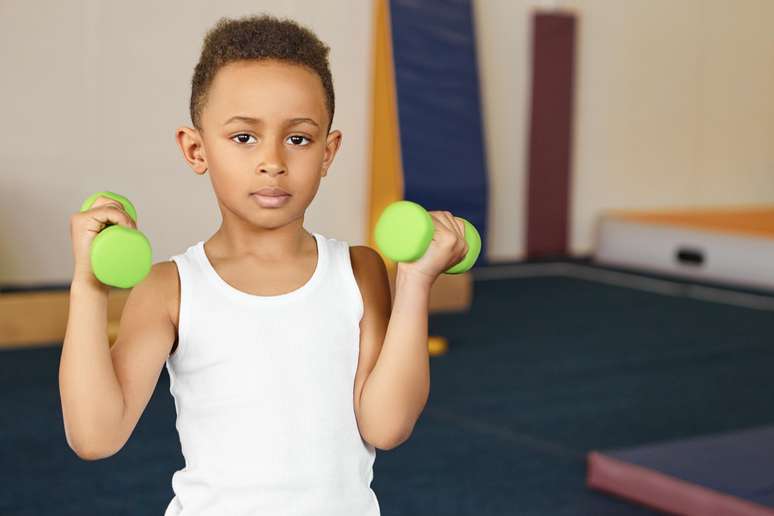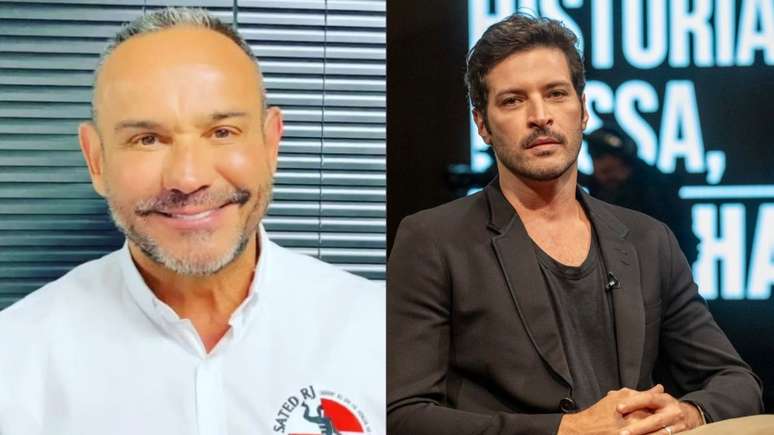Discover the ideal type of exercise, the benefits of training in this age group, and the guidelines needed to protect your little ones.
Anyone who follows trends on social networks like Instagram and Tik Tok will have come across a video of a child lifting weights or running on a treadmill. In fact, this type of content is becoming increasingly common on the web, which ultimately raises an important question: the child can train in the gym?
Second Leander the Twinphysical education teacher and ambassador of Bluefit Academia, and Vinicius Ribeirophysical education teacher and National Director of Operations and Marketing at Bluefit Academia, there are in fact some exercises recommended for the little ones. However, it is necessary to pay attention to the way and frequency with which they are performed so that they obtain benefits rather than the risk of injury.
Training adapted to children
According to Twin, children are in a stage of growth and development that requires a specific approach to avoid injuries and promote adequate benefits in children’s training. In this scenario, he explains that children’s training must be carefully adapted, as it is not possible to apply the same intensity or overload to young children.
“The training usually prescribed is a training with simpler exercises to perform and with higher repetitions so that the load used is less. Something like 15-20 repetitions so that the person can coordinate that weight well,” says the professional. Therefore, the activities must be supervised by qualified professionals to ensure safety and effectiveness in the physical development of children.
Another important point is to understand the purpose of training children to promote healthy development of children and avoid injuries. Therefore, Ribeiro says that children can do weight training with controlled loads and focus on movement when the main goal is to strengthen muscles to improve bodily and cognitive functions during development.
He emphasizes that, in the case of training for children, “the goal should not be aesthetic, but functional, aimed at developing motor skills and physical abilities.”
Leandro Twin adds that “children’s training should be playful and focused on simple exercises, with higher repetitions to reduce the load used.”
For this reason, both professionals say they advise against weight training for very young children, such as those as young as 5, emphasizing “the importance of adequate professional guidance and the use of techniques such as free weights, balls and elastic bands.”
Supervision of children in the gym
Experts say there is no universal minimum age for children to attend the gym, but they stress that adequate supervision is essential to ensure the safety and effectiveness of the workout. Ribeiro clarifies that for children, it is recommended to focus on recreational sports and light physical activities, rather than rigorous physical or strength training.
The Brazilian Society of Pediatrics supports the practice of weight training for children, as long as it is guided by qualified professionals and done correctly, without compromising the healthy development of the child. In view of this, Leandro Twin emphasizes the importance of adequate professional support: “Training should be done under the supervision of a physical educator and using more free weights than weight machines. This is essential to avoid injuries and promote benefits such as better flexibility and muscle and bone development.”
What are the diet and supplements like?
Considering adequate nutrition and avoiding supplementation for children and adolescents is essential to protect the general health of young people and ensure that physical activities are beneficial and safe from childhood.
To improve this part, it is important to highlight the potential developmental health risks associated with supplementation in children and adolescents. “High doses of protein can overload the growing kidneys, while some supplements can interfere with the natural hormonal development of a child,” explains Vinícius Ribeiro.
“The child’s diet should be playful and focused on foods that he likes. It should not be very rigid, but rather relaxed, with good eating habits, such as salads, fruits and vegetables. Water intake is also essential to maintain balance during training,” concludes Leandro Twin.
Source: Terra
Ben Stock is a lifestyle journalist and author at Gossipify. He writes about topics such as health, wellness, travel, food and home decor. He provides practical advice and inspiration to improve well-being, keeps readers up to date with latest lifestyle news and trends, known for his engaging writing style, in-depth analysis and unique perspectives.








